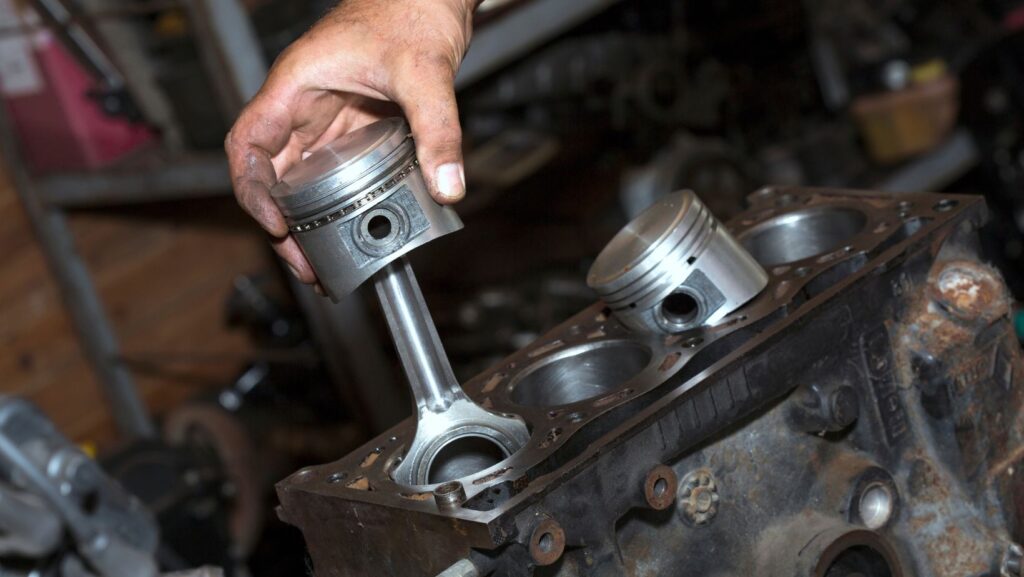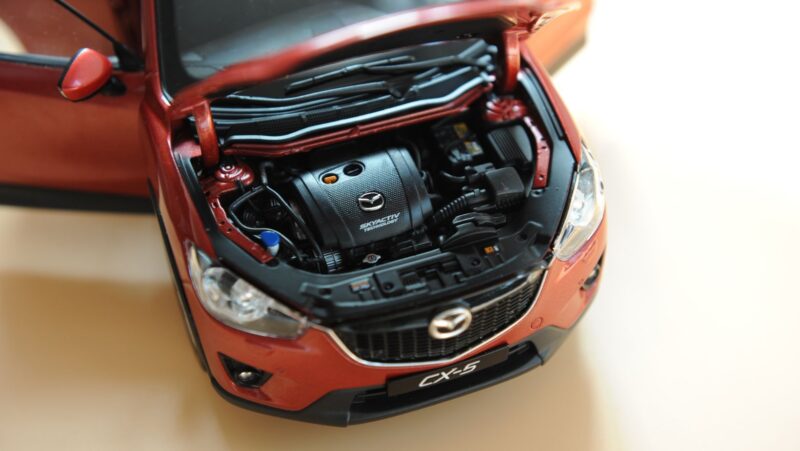
When it comes to maintaining vehicle performance and longevity, most people think of oil changes, regular maintenance, and tire rotations. However, fewer drivers consider one of the most crucial parts of the engine: the piston rod. Choosing the right piston and rod combination can greatly enhance your vehicle’s durability, fuel efficiency, and overall performance.
In this article, we’ll dive deep into what piston rods are, how they work, why they’re important, and how you can make informed choices to extend your vehicle’s lifespan.
What Are Piston Rods?
Piston rods (or connecting rods) are metal components that connect the pistons to the crankshaft in an engine. This connection allows the engine to convert the piston’s linear (up-and-down) motion into the rotational motion required to turn the wheels. In simpler terms, the rods and pistons work together to convert fuel into the energy needed to move your car forward.
How Piston and Rod Systems Work Together
Each piston and rod work in sync to create combustion within the engine, powering the vehicle. Here’s a step-by-step breakdown of how they function:
- Intake: Fuel and air enter the engine cylinder.
- Compression: The piston moves up, compressing the fuel-air mixture.
- Power Stroke: A spark ignites the mixture, causing an explosion that pushes the piston down, delivering power.
- Exhaust: The piston returns to its original position, releasing exhaust gases.
Without reliable piston rods, these processes would lack stability, and performance could be inconsistent or inefficient.
The Importance of Choosing the Right Piston Rod
Choosing the correct piston and rod for your vehicle is crucial. Since these components bear the brunt of the engine’s high-speed motion and temperature, selecting durable piston rods can improve engine performance, reduce wear and tear, and prevent costly repairs. Additionally, high-quality piston rods can improve your vehicle’s fuel efficiency, as they provide a more seamless, effective connection in the engine’s power cycle.
Signs You Need to Replace Piston Rods
There are several indicators that might suggest your piston rods need replacement. Look for these signs:
- Engine Knocking: A knocking noise can indicate piston rod wear.
- Decreased Performance: If the vehicle isn’t accelerating as it used to, a failing piston and rod may be to blame.
- Increased Oil Consumption: Excessive oil usage often signals worn rods and pistons.
- Vibrations: Unusual vibrations, especially when accelerating, can be a sign of engine imbalance due to damaged rods.
Recognizing these signs early and choosing the right piston rods can help avoid major damage.
Types of Piston Rods
Piston rods come in different materials and designs. Selecting the best type for your vehicle can impact durability and efficiency. Here are the most common types:
Steel Piston Rods
Steel rods are highly durable and handle high-pressure environments well. They’re often found in high-performance vehicles, as steel provides both strength and longevity.

However, steel rods are heavier than other materials, which can sometimes impact overall performance.
Aluminum Piston Rods
Aluminum rods are popular in racing engines due to their light weight and high speed capabilities. However, aluminum rods may not be as durable as steel under extreme conditions, so they’re best suited for applications where performance and speed are prioritized over long-term durability.
Titanium Piston Rods
Titanium rods offer an excellent balance between strength and weight, making them suitable for both performance and durability. They’re corrosion-resistant, lightweight, and extremely durable, though they can be costly compared to steel and aluminum options.
Forged Piston Rods
Forged piston rods are made by compressing heated metal into a mold, which makes them denser and stronger than other types. They are known for their resistance to stress and are typically used in heavy-duty or high-performance vehicles.
Factors to Consider When Choosing Piston Rods
The right piston rods can be essential to your vehicle’s durability and performance. Here’s what to consider:
Vehicle Type and Use
For daily drivers, standard steel rods may be ideal due to their durability. Performance vehicles, on the other hand, may benefit from aluminum or titanium piston rods for added speed. Heavy-duty trucks and high-mileage vehicles may require forged rods to handle increased stress.
Driving Conditions
If your vehicle often handles rough terrain, stop-and-go traffic, or high-speed driving, opt for more durable rods like titanium or forged options. Tougher rods can handle the wear and tear caused by harsh conditions, ensuring longer vehicle lifespan and fewer maintenance costs.
Engine Specifications
Your engine’s specific power output and RPM range can affect which piston and rod setup is best. High-RPM engines, common in sports cars, usually benefit from lightweight materials, while engines with high torque may require stronger rods for stability and longevity.
Budget
While durable piston rods can be costly, the investment pays off in terms of longer engine life and better performance. Carefully consider your budget but remember that selecting high-quality rods may save money in repairs and replacements over time.
Benefits of High-Quality Piston Rods
Using high-quality piston rods can have long-term positive effects on your vehicle’s performance and lifespan. Here’s a look at some of the most notable advantages:
Improved Engine Efficiency
The right piston and rod setup improves the power transfer between the pistons and crankshaft. This efficiency translates to better fuel economy and smoother acceleration, which can be beneficial for both everyday driving and high-performance scenarios.
Reduced Engine Wear and Tear
By selecting the correct rods and pistons, you minimize the friction and stress within your engine, which reduces wear and tear. This also means fewer repairs, leading to lower overall maintenance costs over the lifespan of the vehicle.
Enhanced Vehicle Stability
For vehicles that experience higher speeds or heavier loads, quality piston rods provide greater stability, allowing the engine to handle power more effectively. This stability is especially important in performance vehicles or those used in demanding environments.
Longer Engine Life
Choosing durable piston rods ensures that your engine remains in good condition for longer. This reduces the likelihood of premature engine failure, making your vehicle more reliable over time.
Tips for Maintaining Your Piston Rods and Extending Their Lifespan
While choosing the right piston rods is essential, maintaining them properly is just as important for optimal performance. Here are some tips to keep your rods and pistons in top shape:
Regular Oil Changes
Keeping your engine well-lubricated is vital to reducing friction between components. Regular oil changes protect the piston rods from wear, heat, and friction, especially under heavy use or high temperatures.
Avoid Over-Revving the Engine
Pushing the engine to high RPMs unnecessarily strains the rods and pistons. Although engines are designed for power, frequent high-speed driving can wear down components faster than usual.
Use High-Quality Oil and Fuel
High-quality oils and fuels are formulated to keep the engine running smoothly, which directly benefits the piston rods.

Avoiding low-grade products can prevent premature wear and ensure better overall performance.
Inspect Piston Rods Regularly
During maintenance, ask your mechanic to inspect the piston rods for signs of wear or damage. Spotting early signs of rod wear can help you address issues before they lead to more significant problems.
Follow Manufacturer Guidelines
Adhering to the manufacturer’s specifications regarding engine care, oil types, and recommended service intervals can keep the engine in optimal condition. This guidance ensures that your vehicle’s rods and pistons remain effective and reliable.
Frequently Asked Questions (FAQs)
What Happens If Piston Rods Fail?
If a piston rod fails, the engine can suffer catastrophic damage. A broken rod may pierce other engine components, potentially leading to engine seizure, loss of power, and expensive repairs. In severe cases, the entire engine might need replacement.
Can I Upgrade Piston Rods For Better Performance?
Yes, upgrading piston rods is a common way to enhance engine performance, especially for racing or high-performance vehicles. Stronger, lighter rods like those made from titanium or aluminum can boost power and improve handling at high speeds.
How Often Should I Replace Piston Rods?
Under normal conditions, piston rods can last the vehicle’s lifespan. However, in high-performance or heavy-duty applications, you might need to inspect and potentially replace rods more frequently, especially if you notice signs of wear.
Is It Worth Investing In Forged Piston Rods?
For applications that demand durability, such as heavy-duty trucks or high-performance vehicles, investing in forged piston rods is worthwhile. Forged rods handle high-stress environments better and can last longer, even under challenging conditions.
Conclusion: The Right Piston Rod for a Durable Engine
Choosing the correct piston rods isn’t just about performance; it’s about extending the life of your engine and enhancing the overall driving experience. By understanding your vehicle’s specific needs, selecting high-quality rods, and maintaining them properly, you’ll enjoy smoother rides, better fuel efficiency, and a more reliable vehicle.
Whether you’re an everyday driver or a car enthusiast, prioritizing the quality of piston rods is an investment in your vehicle’s future. Follow these guidelines, stay mindful of your driving habits, and ensure regular maintenance to keep your engine running efficiently for years to come.










